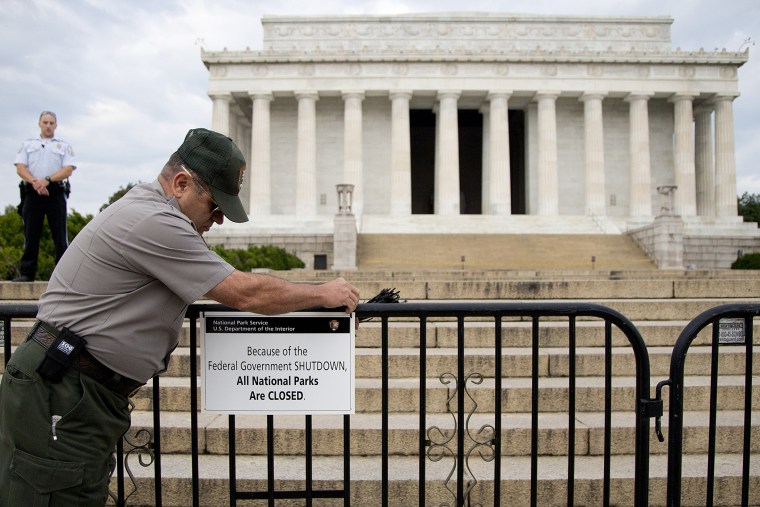House Speaker Nancy Pelosi (D-Calif.) told CBS News the other day that if Donald Trump "is against governance, and doesn't care whether people's needs are met, or that public employees are paid, or that we can have a legitimate discussion, then we have a problem."
With that in mind, I think it's safe to say we have a problem.
The Washington Post published this report on Friday, exactly two weeks after the president's shutdown began.
The Trump administration, which had not anticipated a long-term shutdown, recognized only this week the breadth of the potential impact, several senior administration officials said. The officials said they were focused now on understanding the scope of the consequences and determining whether there is anything they can do to intervene.
This is, of course, the opposite of how the process is supposed to work. Ordinarily, in a functioning administration, officials identify the consequences of a decision before it's made. In the Trump administration, the president stumbled into a decision and then officials scramble to appreciate "the breadth of the potential impact" of their own team's agenda.
In this case, the effects are poised to be quite brutal. The Department of Housing and Urban Development, for example, has begun scrambling to reach 1,500 landlords as part of a "last-minute" effort to prevent thousands of evictions.
The administration apparently didn't realize that tens of millions of low-income Americans who receive food assistance may soon face adverse effects, too.
The consequences for the Transportation Safety Administration are already apparent.
The New York Times added this morning, "The impact of a partial government shutdown began to ripple across the economy as it stretched into Day 17, with mortgage applications delayed, public companies unable to get approval to raise capital and thousands of Secret Service agents expected to show up for work without pay."
Maybe Trump administration officials were unprepared for all of this because they don't fully appreciate what government does. Maybe they expected the ordeal to be brief because Trump's first two shutdown wrapped up quickly.
Or maybe officials didn't see the point in preparing for a shutdown that wasn't supposed to happen. It's a detail that's often overlooked, but facing a Dec. 21 shutdown deadline, the White House told lawmakers on Dec. 19 that Trump would sign a stopgap spending measure that included no wall funding. West Wing officials prioritized avoiding a shutdown, so much of the government approached the deadline confident that nothing would happen.
Then the president started consuming conservative media, he rejected his own position, and one of the longest shutdowns on record commenced.
Whatever the rationale for the mismanagement, if it seems as if the Trump administration has been caught in another amateur-hour moment, that's because it has.
